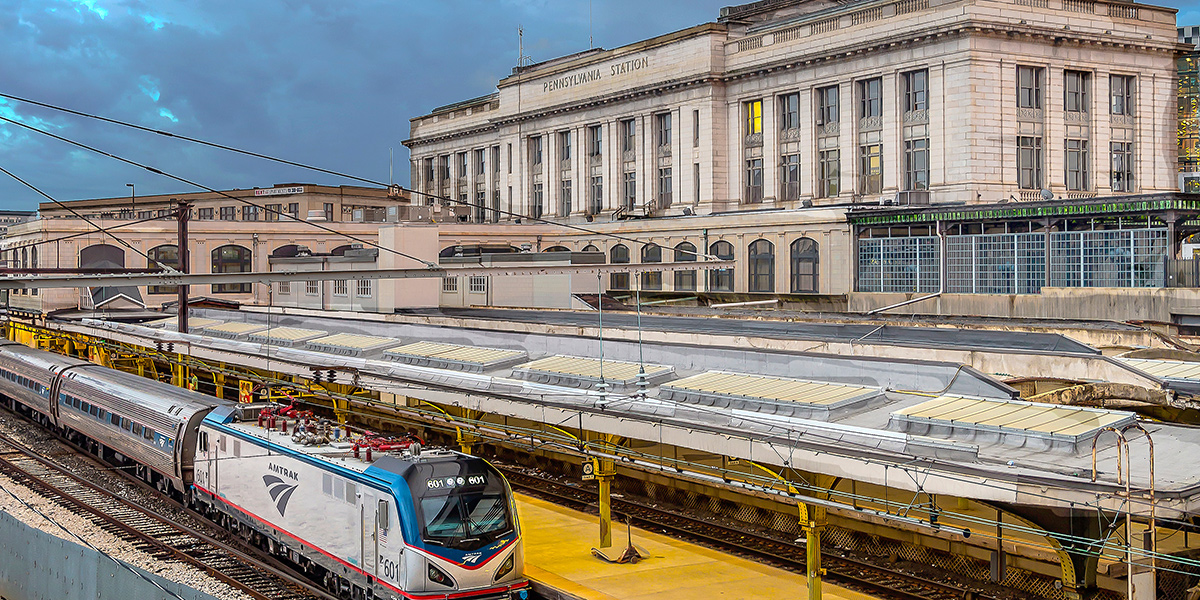Amtrak is pouring $10 billion into a modernization initiative, promising to reshape intercity travel for millions. Yet, beneath the surface of this ambitious project lies a tangled web of equity concerns and access disparities that must be addressed.
Massive Investment in Infrastructure
According to Amtrak"s official updates, this investment is not just about upgrading tracks and trains; it’s about reimagining the entire passenger experience. With plans for new bridges, tunnels, and an expanded fleet, Amtrak aims to meet historic ridership demands and enhance connectivity across over 500 cities, towns, and rural areas. The investment highlights the potential for rail travel to become a cornerstone of sustainable transport in America.
Addressing Historical Inequities
However, as we celebrate these advancements, we must critically examine who benefits from such significant investments. Historically, marginalized communities have often been left behind in infrastructure projects, a trend that threatens to repeat itself unless proactive measures are taken. This raises a crucial question: will Amtrak"s modernization efforts prioritize equity, or will they perpetuate existing disparities?

February 5, 2023 Suspected China spy balloon news | CNN Politics
Environmental Implications of Expanded Rail Services
Rail travel is often heralded as a greener alternative to car travel, but the environmental implications of this expansion must be scrutinized. While the shift to rail can decrease carbon footprints, the construction of new infrastructure can also lead to ecological disruption. As reported by environmental experts, the balance between expanding rail service and protecting natural habitats is delicate. If not managed correctly, Amtrak"s ambitious plans could undermine the very sustainability goals they aim to promote.
Digital Privacy and Ticketing Innovations
In the digital age, Amtrak"s modernization also involves enhancing its ticketing system. The shift to a more efficient, app-based reservation process raises significant questions about digital privacy and data security. Passengers are increasingly required to share personal information to access services, and as we know from countless data breaches, this poses a risk. Privacy advocates argue that without stringent protections, the collection and storage of user data could lead to misuse and exploitation. As highlighted by privacy rights organizations, it is crucial for Amtrak to implement robust privacy measures to safeguard passenger information.

New Era Station Projects | Amtrak
The Role of Community Engagement in Infrastructure Development
As Amtrak gears up for this unprecedented investment, community engagement must take center stage. Past infrastructure projects have often been criticized for a lack of public input, resulting in decisions that do not reflect the needs of local populations. The challenge is for Amtrak to establish genuine dialogues with the communities it serves, ensuring that the voices of all stakeholders are heard. Collaborative planning could lead to solutions that not only advance rail services but also foster community development and resilience.
Ultimately, as Amtrak embarks on this transformative journey, the stakes are high. The potential for enhanced rail services to benefit millions is immense, but without careful consideration of equity, environmental impacts, digital privacy, and community engagement, this initiative risks becoming another chapter in the long history of infrastructure projects that fail to serve all Americans equitably.







![[Video] Gunfire between Iraqi security forces and Sadr militias in Baghdad](/_next/image?url=%2Fapi%2Fimage%2Fthumbnails%2Fthumbnail-1768343508874-4redb-thumbnail.jpg&w=3840&q=75)
